
Accept crypto with CoinGate
Accept crypto with confidence using everything you need in one platform.
Best Crypto Wallets for BTC, LTC, ETH & BCH
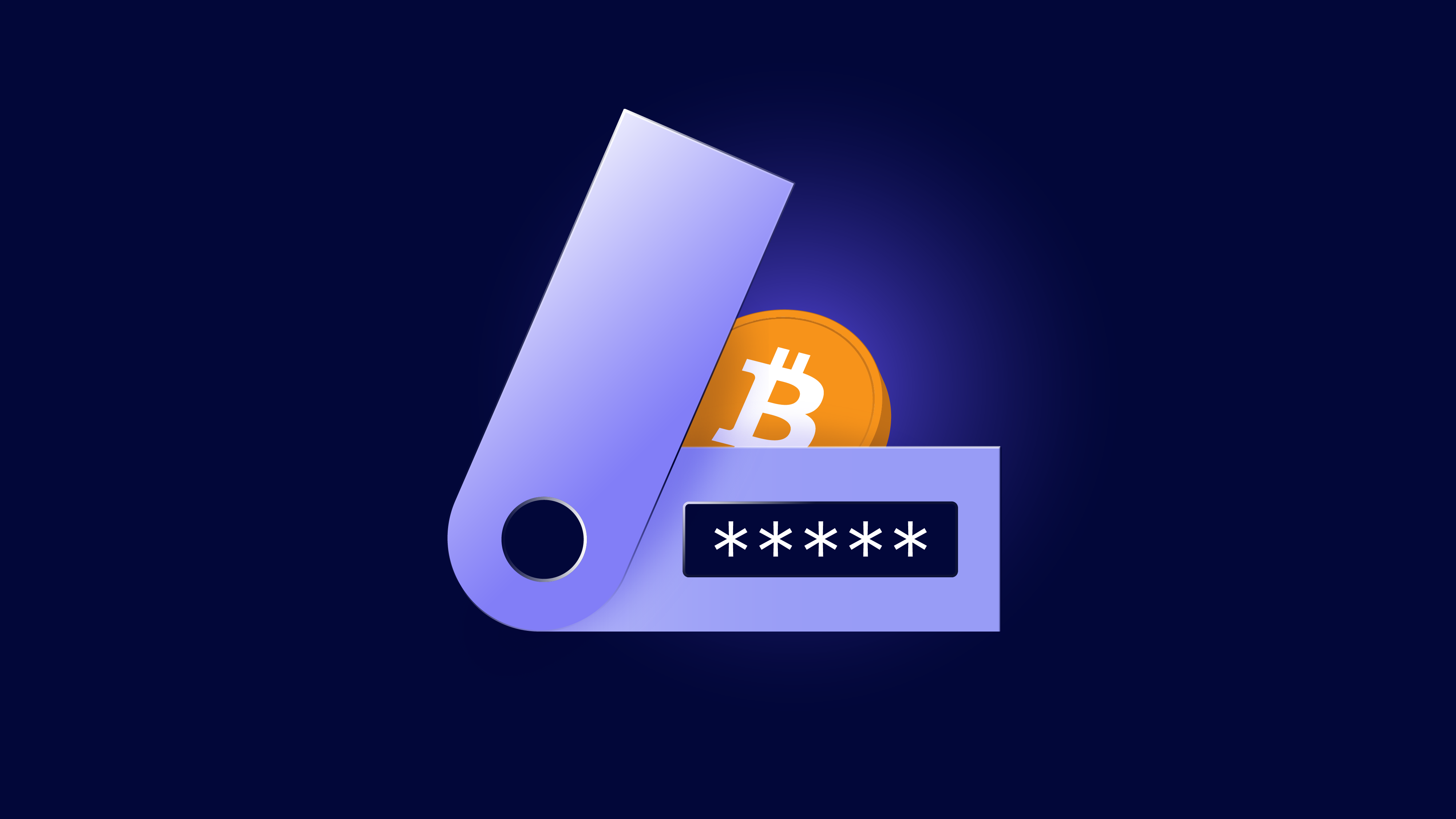
There are many crypto wallets out there, but when it comes to holding your coins, the utmost importance is security.
If you’re holding crypto long-term, cold wallets like Trezor, Cypherock and Ledger offer the best protection by keeping your funds offline.
For everyday transactions, crypto hot wallets provide convenience, but it’s important to choose a non-custodial wallet that gives you full control of your private keys.
We’ve compiled a list of the best cryptocurrency wallets for Bitcoin, Litecoin, Ethereum, and Bitcoin Cash, covering both hardware and software wallets for secure storage and easy access. Let’s dive in!
What are the best crypto wallets: A Quick List
Bitcoin wallets
- Electrum
- Copay
- BlueWllet
Litecoin wallets
- Exodus
- Litewallet
Ethereum wallets
- MetaMask
- MyEtherWallet
- Trust Wallet
Bitcoin Cash
- Electron Cash
- Bitcoin Wallet
Best Bitcoin Wallets
If you’re using Bitcoin regularly, you need a Bitcoin wallet that balances security with convenience.
While Bitcoin hardware wallets are best for long-term storage, hot Bitcoin wallets offer a faster way to send and receive BTC. The key is choosing a non-custodial wallet that gives you full control over your private keys.
We encourage you to learn more about hardware wallets if you wish to take your security very seriously.
1. Electrum
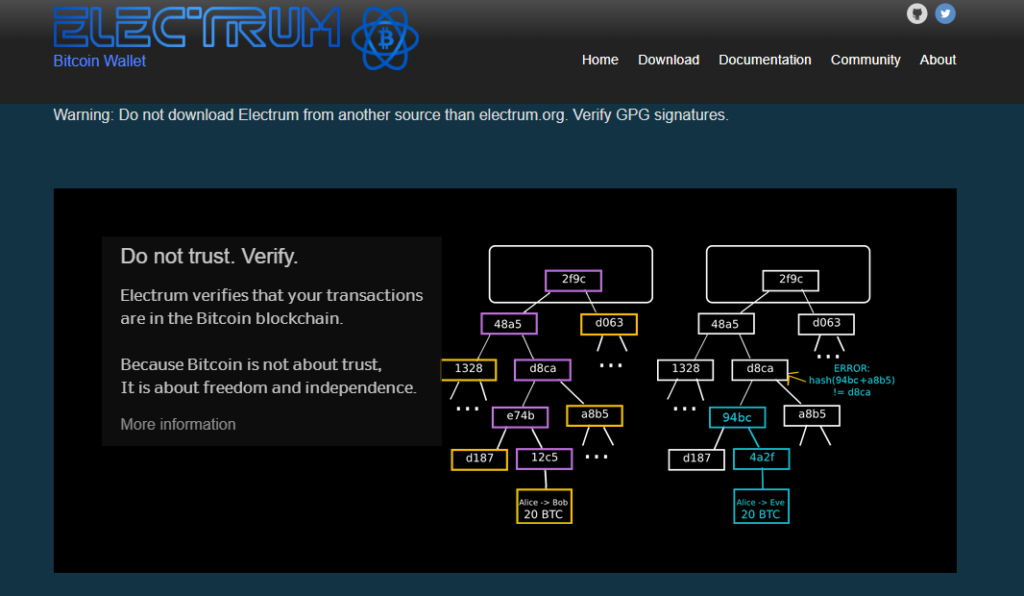
Electrum is one of the top Bitcoin wallets. Additionally it’s also one of the oldest and most trusted wallet in the market. It’s lightweight, fast, and perfect for users who want advanced security features like multi-signature support. (here is how to set it up).
While the interface may seem basic, Electrum is designed for those who prioritize security over design.
- Open-source and highly secure.
- Supports multi-signature wallets for extra protection.
- Allows users to customize transaction fees.
- Available on Windows, Linux, macOS, and Android.
2. Copay
Copay is a user-friendly Bitcoin wallet that’s suitable for businesses and shared accounts. It’s considered a hot Bitcoin wallet, because it’s connected to the internet.
It supports multi-signature transactions, meaning multiple users must approve a transaction before it goes through.
- Available on desktop and mobile.
- Strong security features with private key control.
- Supports Bitcoin and Bitcoin Cash.
3. BlueWallet
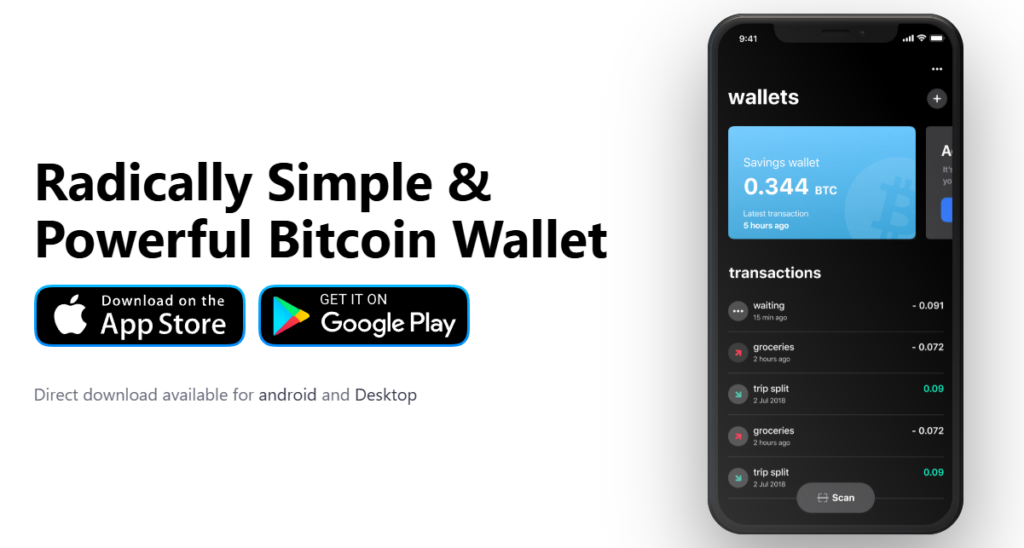
For those who prefer a mobile-friendly experience, BlueWallet is a top choice. It’s a self-custody wallet with an easy-to-use interface. It’s perfect for beginners and experienced users alike, making it one of the best hot wallets for Bitcoin.
It’s also considered one of the best Bitcoin lightning wallets, allowing for faster and cheaper BTC transactions.
- Designed for mobile users (iOS & Android).
- Supports Lightning Network payments.
- Allows for multi-wallet management.
- Advanced security features like offline signing.
Best Litecoin Wallets
Next, let’s talk about top Litecoin wallets. Unlike Bitcoin, Litecoin is known for its faster transaction times and lower fees, so choosing a Litecoin wallet that supports quick and cost-efficient transactions is essential.
Here are some of the best Litecoin wallets to consider:
1. Exodus Wallet
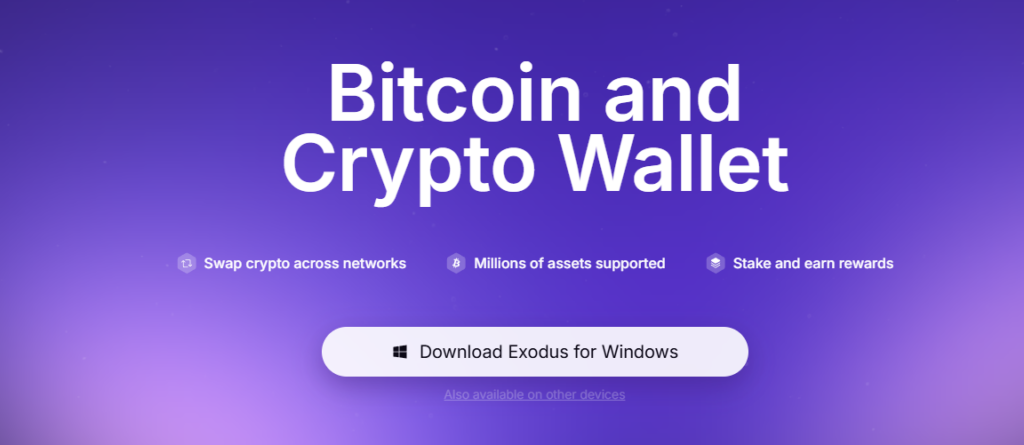
Exodus is a popular multi-currency online Litecoin wallet that supports LTC along with 260+ other cryptocurrencies. It’s known for its clean interface and ease of use, making it great for beginners.
- Supports Litecoin and many other coins and tokens.
- Available on desktop and mobile (Windows, macOS, Linux, iOS, Android).
- Built-in exchange for swapping Litecoin directly in the wallet.
- No account setup required; private keys are stored locally.
- Simple backup and restore with a 12-word recovery phrase.
2. Litewallet

Litewallet, developed by the Litecoin Foundation and Charlie Lee himself, is the go-to mobile wallet for anyone looking to dive into Litecoin with ease. It’s designed to be simple, secure, and beginner-friendly—perfect for both newcomers and seasoned users.
With Litewallet, you can send and receive LTC in just a few taps, whether you’re at home or on the go. Want to buy Litecoin? You can do it right in the Litecoin wallet app, with funds arriving in minutes. It even supports Unstoppable Domains.
It’s everything you need to get started with Litecoin, all in your pocket.
Best Ethereum Wallets
Now, let’s explore popular Ethereum wallets. If you’re looking for the best wallet for cryptocurrency that supports not only ETH but also ERC-20 tokens, choosing the right one is key.
Unlike Bitcoin, Ethereum crypto wallets often come with extra features like DeFi integration, NFT storage, and smart contract support.
Here are some of the top Ethereum wallets to consider:
1. MetaMask
MetaMask is one of the best hot Ethereum wallets, perfect for interacting with decentralized apps (dApps), DeFi platforms, and NFT marketplaces.
It works as both a browser extension and a mobile app, making it a convenient choice for managing ETH and ERC-20 tokens.
- Seamless integration with dApps and DeFi platforms.
- Supports Ethereum-based tokens (ERC-20, ERC-721, and ERC-1155 for NFTs).
- Available as a browser extension (Chrome, Firefox, Opera, or Brave) and mobile app (iOS & Android).
- Built-in swap feature for easy token exchanges.
2. MyEtherWallet (MEW)
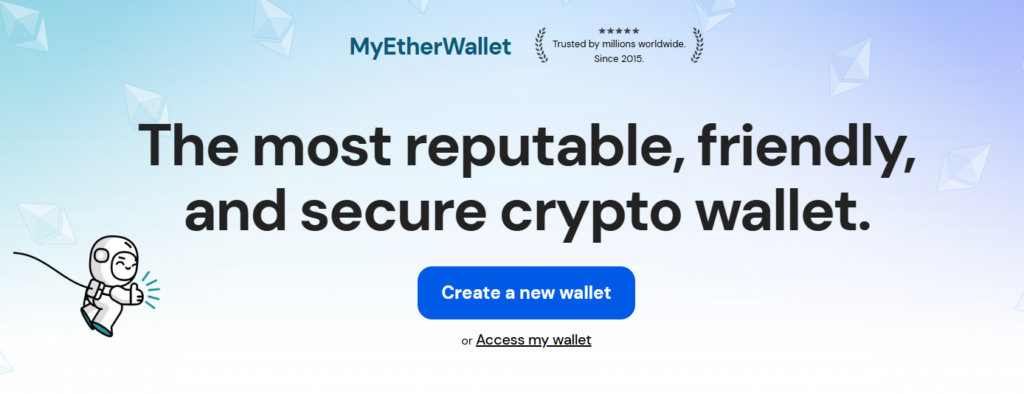
MyEtherWallet (MEW) gives you full control over your private keys. Unlike MetaMask, it’s web-based but also allows you to connect to Ethereum hardware wallets like Ledger and Trezor for added security.
- No need to download an app—access from any browser.
- Supports Ethereum and ERC-20 tokens.
- Connects with hardware wallets for extra security.
- Allows direct interaction with Ethereum smart contracts.
3. Trust Wallet

If you’re looking for an easy-to-use Ethereum wallet app, Trust Wallet is a solid choice. It’s a hot wallet designed for mobile users, supporting ETH, ERC-20 tokens, and even NFTs.
Owned by Binance until 2023, it also has a built-in swap feature and a browser for dApps.
- Supports Ethereum, ERC-20 tokens, and NFTs.
- Built-in Web3 browser to interact with dApps.
- Staking options available for earning rewards.
- Free to use with no registration required.
Best Bitcoin Cash Wallets
If you’re looking for a perfect wallet for Bitcoin Cash, you’ll want one that offers fast transactions, low fees, and easy access.
Since Bitcoin Cash was created for everyday crypto payments, having a wallet that supports quick and low-cost transfers is essential.
1. Electron Cash
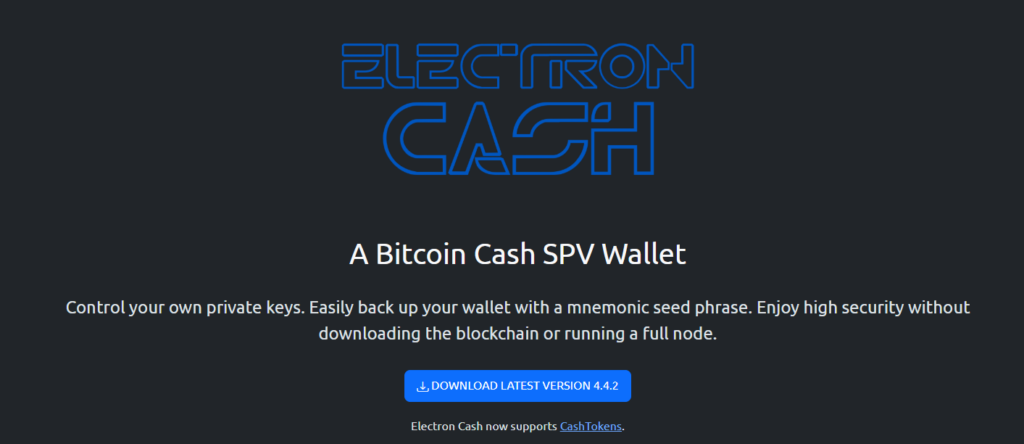
ElectronCash is a fork of the well-known Electrum wallet, built specifically for BCH users. It’s a non-custodial wallet that gives you full control of your funds while remaining lightweight and efficient. You can control the funds directly via Bitcoin cash wallet app on any device: mobile, desktop and even as a browser extension.
- Fast and easy-to-use interface.
- Multi-signature support for extra security.
- Available for Windows, Linux and macOS.
- Bitcoin Cash wallet for Android and iOS.
- Allows recovery of funds using a secret phrase.
If you want to learn more, here’s how to set up Electrum.
2. Bitcoin Wallet

If you’re new to Bitcoin Cash, the Bitcoin Wallet is a great starting point. It’s designed for everyday use, making BCH transactions quick and hassle-free. It’s easily one of the top Bitcoin Cash wallets available online.
For maximum convenience, it includes a built-in feature for buying, selling, and swapping cryptocurrencies.
- Simple and intuitive interface for easy navigation.
- Supports both Bitcoin Cash (BCH) and Bitcoin (BTC).
- Built-in exchange for fast asset swaps.
- Available for iOS, Android, and desktop.
Key Takeaways: Which Crypto Wallet is Right for You?
If you are still not sure of which cryptocurrency wallet to choose, here’s a quick breakdown to help you decide:
1. Ledger & Trezor: Perfect for long-term investors looking for the best cold wallet for crypto and maximum security. These crypto wallets are suitable for Bitcoin, Ethereum, and many other assets.
2. Exodus Wallet: A perfect online Bitcoin wallet if you want a user-friendly wallet that supports multiple cryptos, Exodus is a great pick.
3. MetaMask: Great for Ethereum and DeFi users who interact with dApps, NFTs, and ERC-20 tokens. Works as a browser extension and mobile app.
4. MyEtherWallet (MEW): Best ETH wallet with full control and crypto hardware wallet integrations, MEW is appropriate choice for Ethereum-savvy cryptomaniacs.
5. Trust Wallet: Best for mobile users who want an easy-to-use, digital wallet for crypto with multi-assets, staking, NFTs, and dApp access.
6. Bitcoin.com: Best wallet for Bitcoin Cash beginners who want a simple, beginner-friendly wallet with quick access to BCH transactions.
7. Electron Cash: A secure Bitcoin Cash wallet for users who need fast transactions and multi-signature security.
Final Tips for Keeping Your Crypto Safe
Security should always come first when managing your digital assets. Here are some essential tips to protect your funds:
Backup your wallet by securely storing your recovery phrase. Without it, you could lose access to your crypto permanently.
Never share your private keys. Whoever has them controls your funds. Treat them like your bank password.
Avoid storing large amounts in exchanges. They can be hacked, and you don’t truly own your funds there. History has shown too many examples of exchange hacks.
Use strong passwords and enable two-factor authentication (2FA) wherever possible.
Cold storage is the safest option for long-term holdings. Hardware wallets like Ledger or Trezor keep your crypto offline and secure.
Need more recommendations? Check out our top 10 list of cold wallets.
Crypto Wallet FAQs
What is the best wallet for crypto beginners?
For beginners, online crypto wallets like Exodus and Trust Wallet are great choices. They’re easy to use, support a wide range of cryptocurrencies, and give you full control over your private keys. Exodus is perfect if you want a simple desktop or mobile wallet with a sleek interface, while Trust Wallet is ideal for mobile users who want multi-crypto support, staking, and NFT storage.
What is the best wallet for crypto payments for businesses?
If you’re a business looking to accept crypto payments, a wallet with strong security and support for shared access is key. Copay is a solid choice—it supports multi-signature wallets, making it ideal for team-managed accounts. To streamline your crypto payment operations even further, check out our crypto payment gateway—a complete solution that integrates with wallets and handles payments in various cryptocurrencies.
Should I use a hot wallet or a cold wallet?
It depends on your needs.
- Use a cold wallet like Ledger, Trezor, or Cypherock if you’re holding large amounts of crypto for the long term. These devices store your coins offline for maximum security.
- For everyday use and quick transactions, a hot wallet (like Exodus, Trust Wallet, or MetaMask) is more convenient. Just make sure it’s non-custodial and that you have full control over your private keys.
Can I store multiple cryptocurrencies in one wallet?
Absolutely. Wallets like Exodus, Trust Wallet, and Ledger support a wide variety of coins, including Bitcoin, Ethereum, Litecoin, and many others. These multi-currency wallets are perfect if you’re managing a diverse portfolio.
What is the safest wallet for crypto?
Cold wallets like Ledger, Trezor, and Cypherock are the safest. Since they store your private keys offline, they’re protected from online threats like hacking or phishing. For maximum peace of mind, especially with larger amounts of crypto, we highly recommend using a hardware wallet.
Which crypto wallets support Bitcoin, Ethereum, Litecoin, and Bitcoin Cash?
Here are some wallets that support all four:
- Exodus – Easy to use, supports 260+ assets, and great for desktop or mobile.
- Trust Wallet – Mobile-first, supports a wide range of cryptos and features like staking and NFTs.
- Ledger (hardware) – High-security device supporting thousands of coins, including BTC, ETH, LTC, and BCH.
These wallets offer both convenience and versatility for managing your crypto.
Do I need a hardware wallet for small amounts of crypto?
Not necessarily. If you’re only holding a small amount of crypto for spending or learning, a hot wallet like Trust Wallet or MetaMask is perfectly fine. Just remember to back up your recovery phrase and enable security features like two-factor authentication. When your holdings grow, that’s when switching to a hardware wallet makes more sense.
How many crypto wallets should I have?
The optimal number of crypto wallets depends on your needs, but generally, having 2-3 wallets provides a good balance of security and convenience. Here are some best digital wallets for crypto storage:
- Hot Wallet (1-2 wallets):
- Use for daily transactions, DeFi, and quick access.
- Examples: MetaMask, Exodus, BlueWallet.
- Cold Wallet (1 wallet):
- Store large amounts of crypto offline for long-term security.
- Examples: Ledger, Trezor.
- Multi-Sig Wallet (Business):
- Ideal for business funds or shared assets, requiring multiple approvals for transactions.
- Example: Electrum.
By diversifying wallets, you minimize the risk of losing all assets in case of a hack or hardware failure.
Accept crypto with CoinGate
Accept crypto with confidence using everything you need in one platform.

